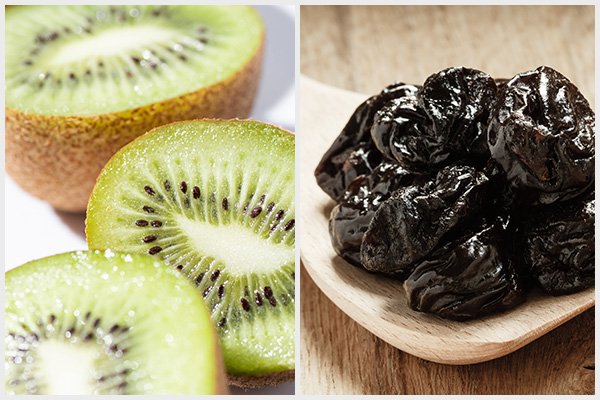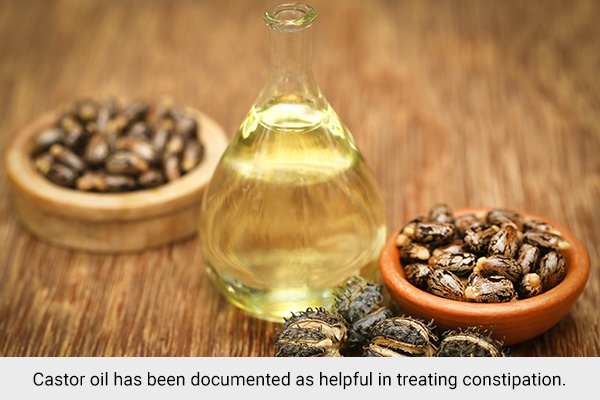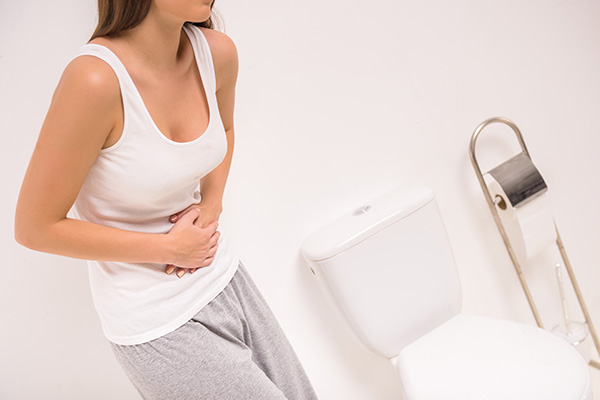In this article:
Constipation is a common digestive problem that affects many people worldwide. It is a condition characterized by infrequent or difficult bowel movements, often resulting in hard, dry stools that can cause discomfort and pain.

It can be caused by various factors, including a low-fiber diet, dehydration, certain medications, and a sedentary lifestyle.
While medications can help soften stools, lifestyle changes and dietary modifications are also essential for preventing and treating constipation.
This article will explore natural methods for softening stools and managing constipation. Keep reading to learn more.
Natural Ways to Soften Stools
Here are some ways to soften your stools naturally.
1. Include adequate fiber in your diet
The quantity of total fiber ingested in a day includes fiber from the diet and other functional fiber sources.
According to the American Heart Association, adults should consume about 25 g of fiber a day via diet. (1) Fiber is essential for preventing constipation as it adds bulk to the stool, resulting in soft stools that are easy to pass.
Dietary consists of nondigestible carbohydrates and lignin that are found in plants. The advised total fiber consumption for children more than 1 year of age per day is expressed as 0.5 g/kg body weight. Common fiber-rich foods you can add to your diet include:
- Cereals
- Rice
- Corn
- Bread
- Vegetables
- Fruits
- Potatoes with peel
- Whole grains
The mechanism of action of fiber in treating constipation is that it increases bulk to the stool and speeds up its colon transit. Therefore, you should ensure proper fiber content in your diet. (2)
2. Eat fruits that can help soften stool
Fruits contain water, sorbitol, fructose, fiber, and phytochemicals, which is why they’re believed to be beneficial for dealing with constipation.
These fruits include:
- Grapes
- Plum
- Apple with peel
- Persimmon
Thus, you should include these fruits in your diet. However, fruits there are considered the most promising for constipation include green kiwifruit and prunes.
Green kiwifruit
Green kiwifruit greatly boosts defecation frequency, stool volume, softness of bowel motion, and comfort of defecation in adults.
Green kiwifruit comprises 2–3 g of dietary fiber in a 100 g portion size, which has a physicochemical role in relieving constipation. Also, actinidine, an enzyme found in green kiwifruit, facilitates upper gastrointestinal tract motility, which is helpful in treating constipation. (2)(3)

Prunes
A prune is a dried plum and is considered helpful in dealing with constipation. It contains a large amount of fiber, fructose, sorbitol, and phenolic compounds that may provide a laxative effect and increase defecation frequency, thereby relieving constipation. (4)
3. Take psyllium husk powder in water every day
Bulking agents are organic compounds that boost stool weight and enhance stool consistency by retaining fluid in the stool and making it soft. Studies endorsing the benefit of bulking agents in the treatment of chronic constipation have formerly been done.
Psyllium is one of the most well-known bulking agents. In research trials, psyllium has been demonstrated to lessen stool transit time and improve stool frequency, consistency, and weight, making it great for fighting constipation. (5)
How to take psyllium husk powder:
- Mix psyllium husk powder with at least 8 ounces of water. Begin with a small amount of psyllium husk powder, such as 1/2 teaspoon, and gradually increase the dose over a few days.
- Consume the mixture immediately, as it can thicken and become hard to swallow over time.
Caution: If you are sensitive to psyllium, whether inhaled or ingested, you may experience an allergic reaction and should avoid using it. Additionally, if you experience abdominal pain, vomiting, or a change in bowel movements that stays for more than 2 weeks, consult your doctor before taking psyllium husk powder.
If constipation still stays for more than 7 days or is accompanied by rectal bleeding, stop using psyllium husk powder and seek medical attention. If you are taking other medicines, take psyllium husk powder 2 hours before or after taking your medication. (6)
4. Take probiotic supplements as directed

Probiotics are live microorganisms that can provide health benefits when consumed in sufficient amounts. The most commonly studied organisms in probiotics are Bifidobacterium and Lactobacillus.
A study on the benefits of probiotics in adults and children for the management of constipation found that probiotics significantly improved stool consistency and frequency. The study participants treated with probiotics noted good improvement in all types of constipation symptoms. (5)
How to take probiotics for constipation:
Picking the most suitable probiotic for you is key to treating constipation, and for that, you can seek professional advice. You can search for supplements that contain Bifidobacterium and Lactobacillus strains of bacteria, which have been exhibited to enhance stool consistency.
To achieve the desired outcomes, take them as directed. Remember supplements may take weeks to work, so don’t be disheartened.
Note: If you do not wish to take supplements, you can consume food rich in probiotics, such as yogurt, miso, pickles, kimchi, and cheese. (7)
5. Ensure proper breastfeeding in infants
There is a considerable amount of prebiotics in human milk that provide substrates for gut bacteria and thus improve osmotic balance and stool consistency. The fat composition of human milk may also support in the creation of soft stools.
Moreover, breast milk contains nondigestible oligosaccharides, which behave like dietary fiber and facilitate the development of beneficial bacteria and stimulate the maturation of the gastrointestinal tract.
So, make sure your baby gets adequate milk via breastfeeding. (2)
6. Go for senna syrup or tablet
Anthraquinones are chemical compounds that are produced by plants such as cascara, senna, aloe, and frangula.
Anthraquinones, when ingested, anthraquinones pass unabsorbed and unchanged through the small intestine and are hydrolyzed by colonic enzymes to generate active molecules. These active metabolites improve intestinal motility and provide relief from constipation.
Anthraquinones commonly cause defecation within 6–8 hours after oral ingestion. (8)
Senna (Cassia species), which is native to India and Africa, has been demonstrated in research trials to soften stools and to improve the frequency and the wet and dry weights of stool. (9)
How to take senna for constipation:
- Senna is available in tablet, liquid, powder, chewable, and syrup forms and is to be taken 1–2 times a day. (10)
- You can also boil and steep senna leaves after drying them to make senna tea and drink it before bedtime.
Caution: Don’t take senna for more than a week without consulting a doctor because it may cause dependence on laxatives and other digestive problems. If you’re pregnant, planning to conceive, or breastfeeding, talk to your doctor before using senna to avoid potential risks. (10)
7. Take castor oil with a glass of milk

Castor oil is a vegetable oil extracted from Ricinus communis. Castor oil is mostly known for its laxative action. Therefore, castor oil has been documented as helpful in treating constipation.
Castor oil is given orally. A reasonable daily dose for adults is 15–60 ml per day. (11)
How to take castor oil for constipation:
Take 2–3 tsp of food-grade castor oil in a glass of warm milk and drink this before sleeping. It is recommended to wait for 2–6 hours for the oil to take its effect and result in a bowel movement.
Do not take castor oil long term or more than a week without a doctor’s consultation.
8. Take flaxseeds every day
Research suggests that consuming flaxseeds may alleviate constipation symptoms in people with type 2 diabetes. Increasing fiber intake through flaxseed consumption could be a beneficial dietary approach for softening stool. (12)
How to take flaxseeds for constipation:
Experts suggest you take 1–4 tbsp of flaxseeds every day to achieve regular bowel movements.
9. Drink more water
Constipation is characterized by slow gastrointestinal transit due to small and hard stools that create difficulty in defecation. Inadequate fluid intake is an expected cause of constipation, and boosting fluid intake is often the suggested treatment.
Studies indicate that increasing fluids is only of benefit to people in a hypohydrated state and is of little use in sufficiently hydrated individuals.
Even in older individuals, low fluid intake poses a risk for high levels of acute constipation. So, make sure you drink a total of about 2.7 liters of fluid every day, according to the National Academies of Sciences, Engineering, and Medicine. (13)
10. Exercise regularly

Routine physical exercise has been deemed important in the management of chronic constipation. This is most likely because exercising reduces the transit time via the gastrointestinal tract.
Constipation has been linked with insufficient physical activity and increased sedentary lifestyle.
Studies also show that walking less than 0.5 km per day was a cause of an increased risk of constipation in the elderly. Therefore, it is advised to perform at least 60 minutes of moderate-to-vigorous physical activity every day. (14)
Contraindications and Cautions With Taking Laxatives
Most laxatives are generally safe if used correctly and if there are no contraindications for the person taking them. However, some laxatives may cause unpleasant side effects such as: (15)
- Bloating
- Nausea
- Vomiting
- Diarrhea
- Abdominal pain
- Headache
Laxatives can be contraindicated in some people and thus should be taken in such people only after consulting a doctor. The contraindications include: (15)
- Heart conditions
- Pregnancy
- Being bed-ridden
- Allergies
- Kidney disorders
- Intestinal obstruction
When to See a Doctor
Immediately call your doctor about your constipation if: (16)
- Your symptoms persist for more than 3 weeks.
- Your symptoms are getting worse.
- You have a nasty stomach ache when you defecate.
- Your stools are always thin.
- You see blood in your stool.
- You are losing weight.
Most-Asked Questions
What are the types of constipation?

Constipation can be classified as either acute or chronic. Chronic constipation lasts for more than 3 months. Acute constipation typically happens suddenly and is usually resolved within a short period. (17)
How is IBS related to constipation?
People with irritable bowel syndrome (IBS) may experience symptoms such as abdominal discomfort and changes in bowel movements, but they usually have normal colonic transit and anorectal functions. However, they may also have difficulties with bowel movements.
How often should I pass stools?
Normal bowel movement frequency ranges from 3 bowel movements per day to 3 bowel movements per week.
How much fiber should I include in my diet?
The recommended amount is 25–35 g of fiber a day.
Can constipation cause hemorrhoids?
Experts explain how pushing too hard during bowel movements, which could be due to problems with the muscles in the pelvic area, can cause damage to the anus and rectum, leading to conditions such as hemorrhoids, anal fissures, and rectal prolapse. It may also cause fainting.
What is fecal impaction?
Fecal impaction is a condition that is often caused by or associated with constipation and is common among the elderly who are bedridden or have reduced physical activity. It occurs when stool becomes stuck in the rectum and colon, making it difficult to pass. (18)
It can also occur after receiving barium through the mouth or enema.
Can I take supplements for fiber if not via diet?
Yes, you can either eat fiber via diet or take a supplement after talking to a doctor.
Is constipation related to age?
According to healthcare professionals, when people get older, they are more likely to experience constipation. The reasons include a diet low in fiber, not getting enough exercise, having other health problems, or taking certain medications.
Moreover, many older adults may also have false ideas about what is considered normal when it comes to bowel movements and may use laxatives too often.
Can I get addicted to laxatives?
No, you won’t get addicted to laxatives even if used for long durations.
What are some warning signs of constipation?
If you experience constipation, there are some signs you should watch out for. These include seeing blood in your poop, losing weight without trying, and having a swollen belly that sounds hollow when you tap it.
Final Word
There are numerous natural choices to select from when finding methods to alleviate constipation. Small modifications to your daily lifestyle can have notable benefits.
Natural ways of softening stools are better as they have only a few adverse effects in comparison to taking medicines such as laxatives, which can disrupt the body’s innate equilibrium even more.
- Was this article helpful?
- YES, THANKS!NOT REALLY


